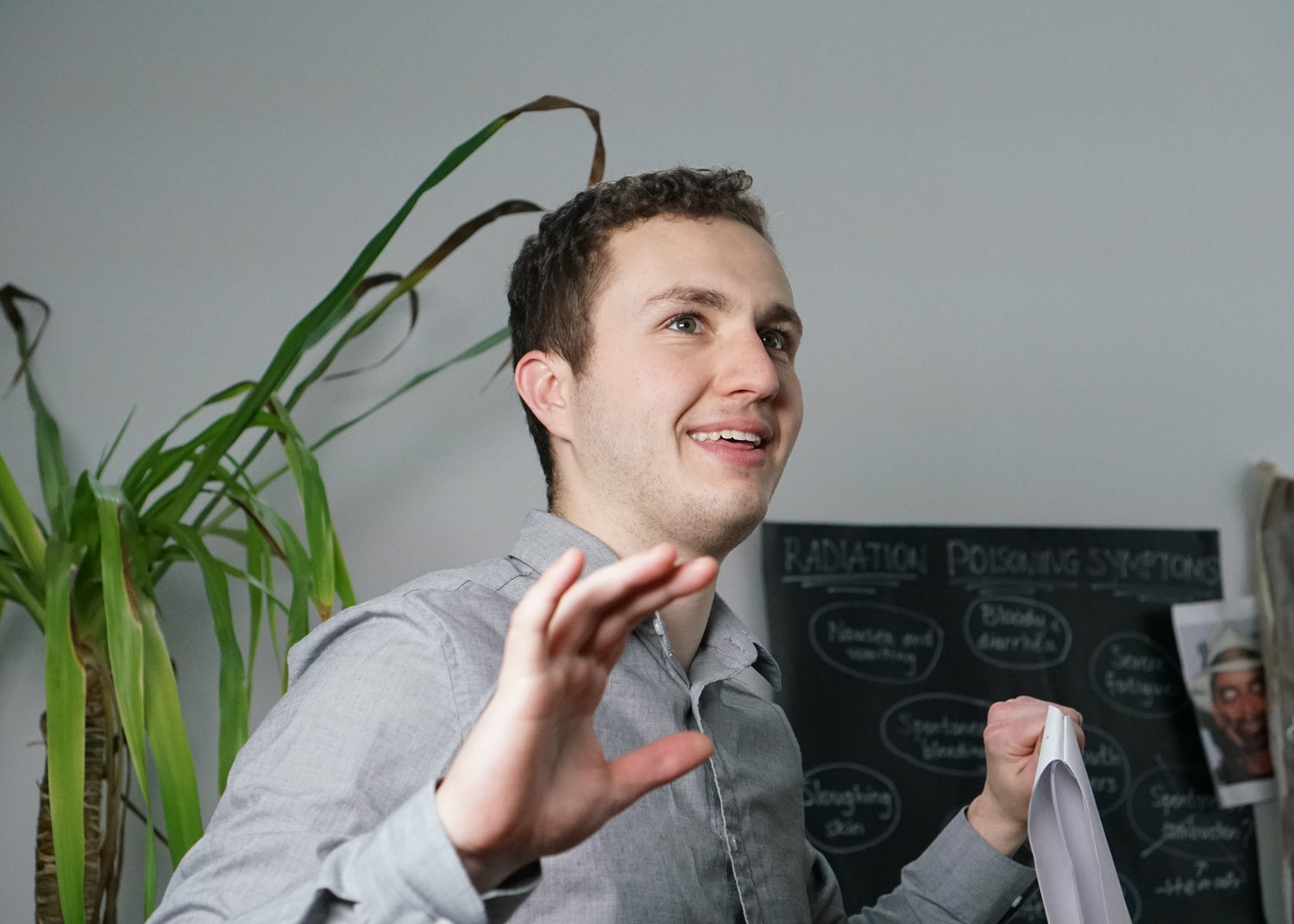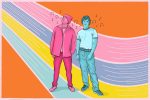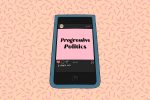If you turn on any news channel right now, you’re likely to see what looks like an impending disaster that will worry you for the rest of the day. It’s become far too easy to feel stressed out and scared from watching the news, especially when it seems as though there’s a new terrifying story being reported every few minutes. Wouldn’t it be nice to watch some funny news with no impact on your day?
That’s where Brian Baldocchi, the creator of Amazon Prime show “Nuke City” and graduate of NYU Tisch School of the Arts, comes in. He created a new show, “Fake News at Night,” as a hilarious yet poignant response to the crazy news being reported every day. The series is structured like a real newscast but only reports fake news. I had the opportunity to speak with Baldocchi about his show and delve into the inspiration behind it.
Rebecca Blyn: What inspired you to go into filmmaking, and why did you choose to go to NYU?
Brian Baldocchi: My great-grandmother was a TV writer, and ever since I was a kid, she pushed me in that direction. When I was a sophomore in high school, I took an Arts Center College of Design high school summer course for film, and ever since then, I went in that direction. I chose NYU only because Donald Glover studied dramatic writing at NYU, so I was, like, I want to do that. And it’s worked so far.
RB: What other shows did you work on before you started “Fake News at Night”?
BB: My first series that I did, I was in school at NYU. It was called “Nuke City” and it ended up getting distributed through Amazon Prime. It was a post-apocalyptic comedy that really only appealed to 13- to 17-year-old boys. We did really well with them, and we did about $100,000 on that. But, in the end, I was like, okay, we need to do something a little more broad-reaching, because these people like it, but everyone else hates it.
RB: What inspired you to make “Fake News at Night” besides wanting to branch out your audience?
BB: A couple different things. I’ve been watching late-night type stuff since I was a kid, like “Colbert Report.” What I liked about that show, was that [Stephen Colbert] played that conservative character so well that conservatives didn’t know they were being made fun of sometimes. At first glance, you could have thought he was on your team. [Late night shows] have taken a turn to saying things so that audiences clap rather than laugh, because of the ratings boost associated with being political and talking about Trump. But the problem with that is that when you attack ideology so aggressively with jokes, you instantly turn off everyone who’s not aggressively on your side … It’s too pandered.
The fake news concept came out in the 2016 election, and that whole thing is kind of what created [this show], because I was really tired of the way the news was being reported. The stuff happening is atrocious, and there’s all this stuff that’s going on in 2018 that’s unprecedented, but I also think that if you watched CNN for a day, you would think the world was going to end. You watch it, and they just scream and they freak you out because it gets them good ratings.
… What I tried to do for our show is take the worst parts of everyone and stick it into three people and do a CNN-style show. Let’s bring on two people from each side, but only report on topics that no politician or political party has a stance on. Because then nobody can assign any political agenda to what we’re talking about, and we can actually focus on satirizing the news.
RB: How long did it take to write each episode?
BB: The process took a full week to write all [15 episodes], but two weeks total. We did it very “boot-campy,” so I hired all these writers and we met in my yard office. We sat there for two straight days and came up with all the concepts, talked them all through and then I assigned them to people. From there, everyone submitted their sketches, we rewrote them together and they submitted again on the last day of the week. I sent them to Sabina [one of the show’s writers] who rewrote them all from New York and punched them up with jokes. Then, I rewrote them to finalize them for our shoot date.
RB: What was your process for finding ideas for the show?
BB: A few different things. Because we couldn’t do anything political, we thought about issues that are not political. What do people talk about at parties and yell at each other about that’s not politics? We actually found that the people who are in these groups that we’re making fun of are not very offended by [the show], because we’re not making any sort of statement. It’s just two people arguing a point, and then a kind of dumb point at the end. It’s supposed to be fun; we weren’t really trying to piss a bunch of people off.
RB: Why did you choose to create short episodes?
BB: For “Nuke City,” we did five to seven minutes, and I found that was too long. Nobody knows who I am, nobody knows who these people in it are. It’s an unknown entity. And when you’re asking for people’s time for the first time, it’s a lot easier to ask for 90 seconds or three minutes. I don’t want to ask a lot of my viewers.
We put out enough content that people feel like we’re not short-changing them. I think we’ll start to see [media] in short form in general. I’m copying a bunch of people in this concept; I didn’t make this up. Have you heard of “Brilliant Idiots,” the podcast? One of the people in the podcast, Andrew Shultz, posted one-minute clips of him doing stand-up every week, and it changed his career.
RB: Why did you choose to show “Fake News at Night” on Facebook?
BB: We actually started on YouTube and Facebook, but Facebook worked for this specific show because we’re making fun of people and they’re tagging their friends. We grew quickly because of the Facebook medium and because of the type of content that it is. [The show] just works on Facebook.
RB: Who was your target audience?
BB: It’s funny, because I had a target audience that I thought I was going for. I thought I was really going to connect with people who were either extremely fed up with everyone or extreme on either side, because I thought they would apply the other side’s politics to it and think I was making fun of them. But it’s kind of like everyone likes it. We do equally as well with Trump supporters as we do with Elizabeth Warren supporters. And that’s why it’s grown so quickly. It’s a show that somehow grabbed all those audiences. Everyone’s fed up with the news. We’re attacking the one thing everyone is tired of.
RB: Do you have any advice for aspiring writers and creators?
BB: Don’t just write, you have to do it. You have to make something. A ton of people want to do this. What separates people is not their talent. You actually have to put in work. Ninety-nine percent of people who want to be in this space aren’t trying. So, if you just try, even if you try and fail, you have to keep doing it. Just try to make something you would like to see.
RB: Do you have a favorite TV show?
BB: I love “Atlanta.” I’m a Donald Glover fan, and I hate that everyone’s on the bandwagon, because I saw him do comedy when I was in eighth grade. I love his show; it does something with the format that is very different from everything else on TV. It’s very unique, and that’s what I strive to be — just unique. “Atlanta” is always funny.
RB: What can we expect next from “Fake News at Night”?
BB: Hopefully it’s on TV for 30 minutes.
















